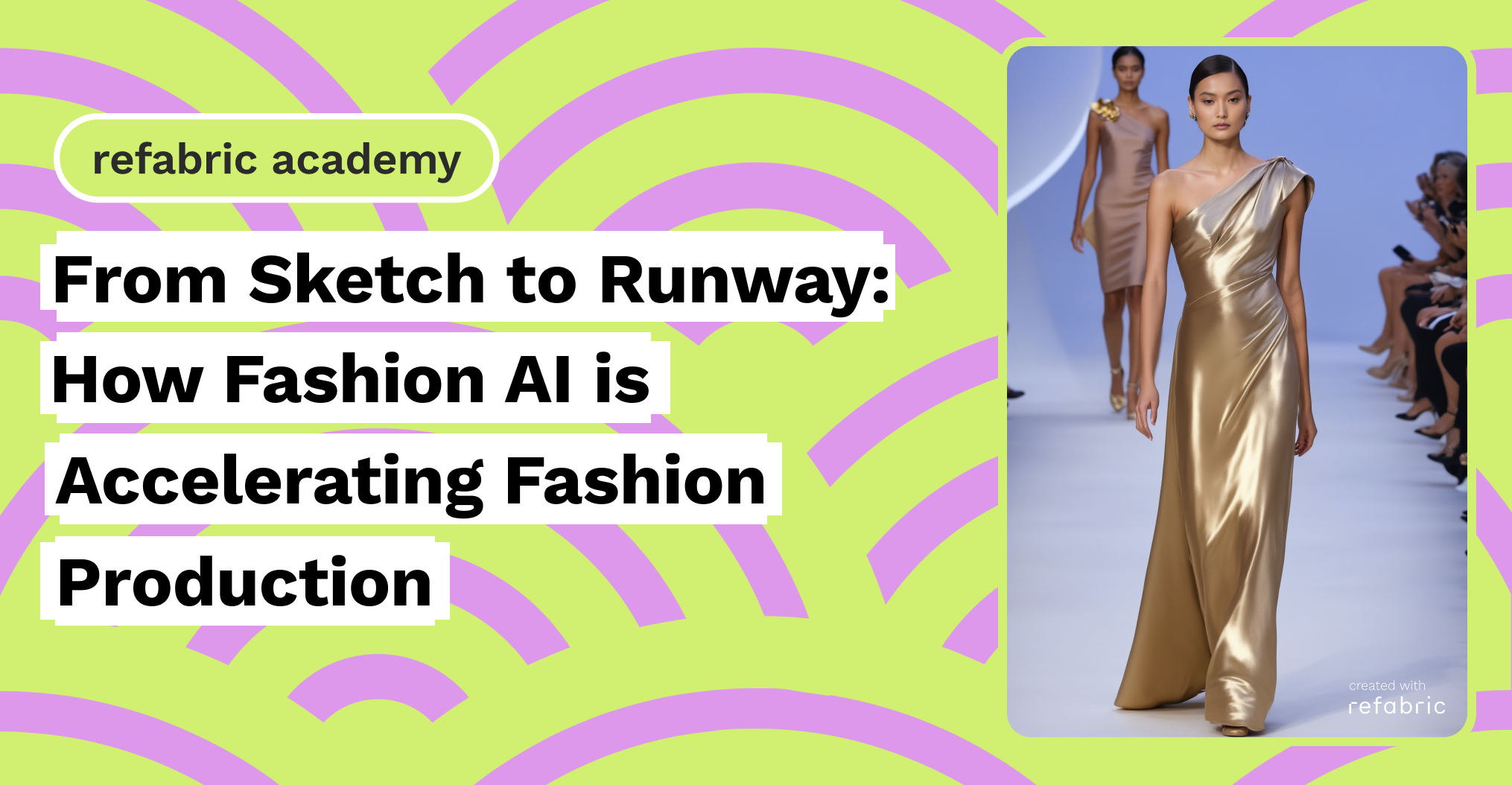With Fashion AI at the forefront, the fashion industry is in a constant state of evolution, with trends changing at a rapid pace. Traditionally, the journey from a designer’s initial sketch to a fully realized collection on the runway could take months or even years. However, with the advent of Fashion AI, this process is being dramatically accelerated, allowing brands to keep up with the fast-paced demands of the fashion world.
Fashion AI is transforming fashion production in several key areas, from design conceptualization to manufacturing and even trend prediction. This technology is not only speeding up the process but also making it more efficient, sustainable, and innovative.
Fashion AI in Design: A New Creative Partner
One of the most time-consuming aspects of fashion production has always been the design phase. Traditionally, designers would spend countless hours sketching, revising, and perfecting their ideas. Today, fashion AI is stepping in as a creative partner, helping designers to generate new concepts and streamline their workflow.
AI-powered design tools, such as generative design software, can create multiple variations of a single design idea in a matter of minutes. By inputting parameters like color schemes, fabric types, and even historical design references, designers can receive a range of options to choose from, which can then be refined to fit their vision. This not only speeds up the design process but also allows for a level of experimentation that was previously unattainable.
Moreover, fashion AI can analyze vast amounts of data, such as past collections, consumer preferences, and current trends, to predict what designs will resonate most with audiences. This predictive capability helps designers create pieces that are more likely to be successful, reducing the risk of creating a collection that doesn’t sell.
Streamlining Production: From Prototype to Product
Once a design is finalized, the next challenge is turning that sketch into a physical product. Here again, fashion AI is playing a pivotal role in speeding up the process. Traditionally, the production of prototypes involved multiple iterations, fittings, and adjustments, which could take weeks or even months.
With AI-driven tools, designers can create highly accurate digital prototypes that simulate the look, fit, and movement of garments. These virtual prototypes can be tweaked and adjusted in real-time, drastically reducing the need for physical samples. This not only speeds up the production process but also reduces waste, as fewer physical prototypes need to be discarded.
Fashion AI is also optimizing the manufacturing process. AI-driven machines can now handle tasks such as cutting fabric, sewing, and quality control with incredible precision and speed. These machines are capable of learning and improving over time, ensuring that each piece is produced to the highest standards. This level of automation allows brands to produce collections more quickly and at a lower cost, without sacrificing quality.
Predicting Trends and Demand: Staying Ahead of the Curve
In the fast-moving world of fashion, being able to predict trends and consumer demand is crucial. Traditionally, this has been a challenging and often unpredictable aspect of fashion production. However, fashion AI is changing that by analyzing data from a variety of sources, including social media, online searches, and sales data, to identify emerging trends and forecast demand.
Fashion AI algorithms can track patterns in consumer behavior and use this information to predict what styles, colors, and materials will be in demand in the near future. This allows brands to produce the right amount of inventory, minimizing overproduction and reducing the risk of unsold stock. It also enables brands to react quickly to changing trends, ensuring that they always have the latest styles available.
Fashion AI is revolutionizing the fashion industry, transforming the way designs are created, produced, and brought to market. By streamlining every stage of the production process, fashion AI is allowing brands to move from sketch to runway faster than ever before. This acceleration not only helps brands stay competitive in a fast-paced market but also opens up new possibilities for creativity and innovation.
As AI technology continues to advance, we can expect to see even more dramatic changes in the fashion industry. From personalized clothing to on-demand manufacturing, the future of fashion production is set to be faster, more efficient, and more exciting than ever before.
